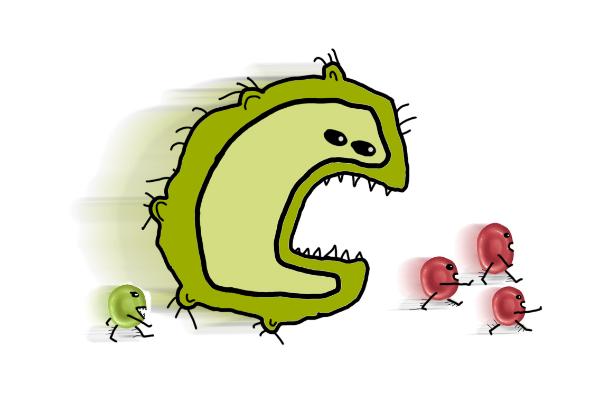Ignorance on an unknown epidemic

Ignorance on an unknown epidemic
May 5, 2008
No one likes going to the doctor, especially if they find out bad news. But for at least 50 percent of students, they will receive the news that they have human papilloma virus, better known as HPV. What is worse is that many will go undiagnosed because HPV has no symptoms. With a virus that is so prevalent on college campuses, students need to know what HPV is and how they can stop it.
What is HPV?
Human papilloma virus is the name of a group of viruses that includes more than 100 different types. Genital HPV infection is a sexually transmitted disease that is caused by HPV. Today, approximately 20 million American women are currently infected with HPV, according to the Center for Disease Control.”Genital human papilloma virus is the most common sexually transmitted infection,” said Erin Velikoff, registered nurse at the Student Health Center. “More than 40 of these viruses can cause infection of the skin and mucous membranes, including the skin of the penis, vulva (area outside the vagina), anus and the linings of the vagina, cervix and rectum.”
Who does HPV affect?
According to Velikoff, 6.2 million people become newly infected each year. At least 50 percent of sexually active men and women acquire genital HPV infection at some point in their lives.HPV can be broken down into three major types:
Genital warts – About 1 percent of sexually active adults in the U.S. have genital warts at any one time.Cervical cancer – The American Cancer Society estimates that in 2008, 11,070 women will be diagnosed with cervical cancer in the U.S. Other HPV-related cancers are much less common than cervical cancer. All women are at risk for cervical cancer. It occurs most often in women ages 30 years and older. In 2004, more than 3,800 women died from cervical cancer.
How can you contract HPV?
Most students contract HPV from unprotected sex.Because you can’t see HPV, many men and women go undiagnosed and continue to spread the virus.
In most cases 90 percent of HPV is cleared up by their own immune systems within two years, but in some cases HPV needs to be caught so it doesn’t lead to cancer.
Is HPV curable?
No, HPV is not curable. But it doesn’t mean a death sentence is in your future.”There are treatments for the health problems that HPV can cause – like genital warts, cervical cell changes and cervical cancer,” Velikoff said.But for most there are ways you can prevent yourself from contacting the disease.
Get tested: Ask your doctor to test you. This way, your partner(s) will know if they should get tested or not.
Use Condoms: They reduce the risk of contacting HPV, but aren’t 100 percent effective. “Condoms may also lower the risk of developing HPV-related diseases, such as genital warts and cervical cancer,” Velikoff said. “But HPV can infect areas that are not covered by a condom-so condoms may not fully protect against HPV.”
There is also a new vaccine called Gardasil that can help prevent women between the ages of 9 and 26 from contracting HPV.”It protects against the four HPV types that cause most cervical cancer and genital warts,” Velikoff said. Women who aren’t sexually active should get the vaccine before they become sexually active because it doesn’t protect those who already have HPV or abnormal cells. Young active women should inquire about the vaccine from their doctors. Unfortunately, Gardasil has not been approved for men or women over the age of 26.
Where Can I get screened for HPV?
The health center offers STD testing and Pap smear test for women.”The Pap smear is a test that is done during the pelvic exam where cells are collected,” Velikoff said.After the cells are collected, a pathologist examines them to see if the cells are normal. The screening also helps catch HPV and abnormal cells that can lead to cancer.
As for now, there are no screenings to test men. But doctors can give a “visual inspection to see if the male has any bumps, lumps or lesions present,” Velikoff said.
So if you are a sexually active man or woman, you have to be responsible enough to protect yourself. So go out and buy condoms or do yourself and your partners a favor and get tested.
Yasmine Bikul can be reached at [email protected]




























































































































